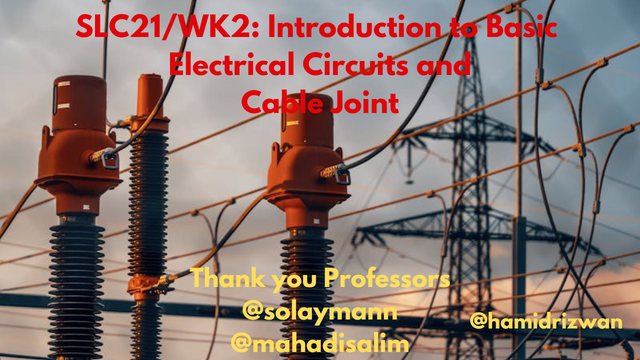
Dear Professor, @solaymann and @mahadisalim I thank you very much for organizing this contest. I am very happy to participate in this contest because it is very interesting. I invite three of my friends @meheruntinni, @sahar78 and @watti to be participants in this contest.
| What is an Electrical Circuit? |
|---|
An electrical circuit is a complete path or line for the flow of an electrical current.
It consist of these followings!
Source of supply (i.e battery)
Connecting Wires
Current flow controller (switches)
Circuit Breaker and fuses ( protective devices)
| Importance of Circuits in Electrical Engineering? |
|---|
In electrical engineering, engineers use electrical circuits to distribute power and to flow electric current.
Electrical Circuit also serves as a safety in electrical engineering. For example, such as circuit breakers. They automatically shut off in case of current. These mostly protect us from electrical shocks and fire.
| B. Difference Between Series-parallel Circuits? |
|---|
| Difference | Series Circuit | Parallel Circuit |
|---|
| Connection | Components are connected in a single line (one after the other). | Components are connected same position to each other. |
|---|
| Circuit Breakage | If one circuit fails, the entire circuit will stop working. | If one circuit fails, the other is not affected. |
|---|
| Total Resistance | Total Resistance is directly proportional. If we add new resistor in our circuit, then total resistance should be increases and vice versa. | Total Resistance is inversely proportional. If we add new resistor in our circuit, then total resistance should be decreases and vice versa. |
|---|
| Series Circuit. I calculate the Total Resistance as shown in above |
|---|
| Take two pieces of wire and connect them properly. Be sure to mention consistent images and clear descriptions? |
|---|
Now I have started doing my practical work. According to the instructor's instructions, I needed three things. Including...
- Wire
- Knife
- Combination Plier
Then I removed the wire insulation with a knife. I kept the knife between 30 and 60 degrees. It was easily removed and the wire was not damaged.
I very carefully removed the insulation from both wires from all around as you can see in this picture.
Then I started connecting the two wires. It was a new task for me but turned out to be very interesting.
I put both of them at 90 degrees and connected them opposite each other. Which you can see in my picture.
Believe me, I'm very happy to see my task.
| After completing this lesson write what you learn in your own words? |
|---|
Let me tell you that I am a Law student and I didn't know anything about series and parallel circuits. But Alhamdulillah I read about series and parallel circuit in this course and learned many good things and I researched it.
I got to learn a lot in the series circuit. For example, now we place four to five bulbs in a series. If one bulb stops working, the entire circuit breaks.
Similarly, if you put four to five bulbs in a parallel circuit, So even if one gets fails, the others continue their work. So you have explained the series and pearl combination very well.
Cable joint This was also new thing for me. Let me tell you what I liked the most was the cable joint. As I didn't know about the cable joint at all. Whenever there was a problem with a cable joint in our house, we used to call an electrician.
But Alhamdulillah, I was able to do that if any such work comes in the future, God willing, I will definitely be able to do it. And you explained to us very well with very easy steps. And I am very happy to know. May Allah bless you always.

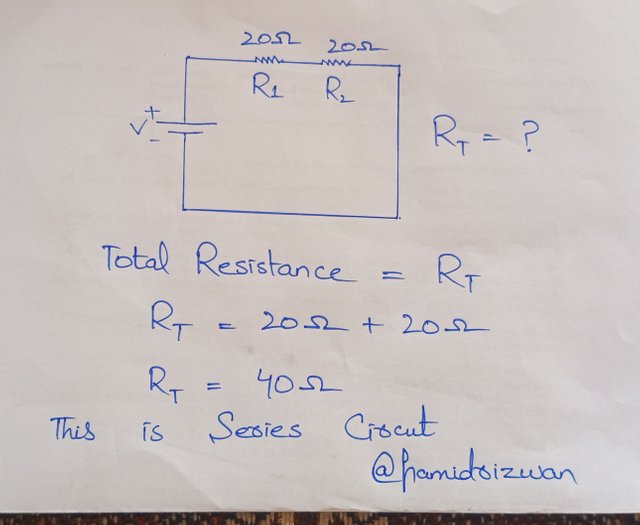
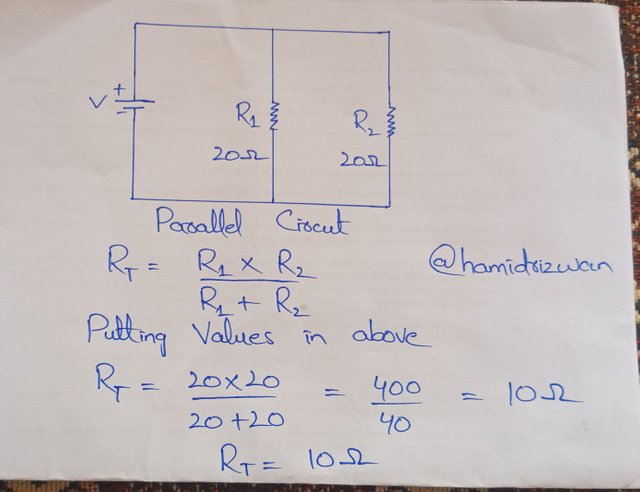
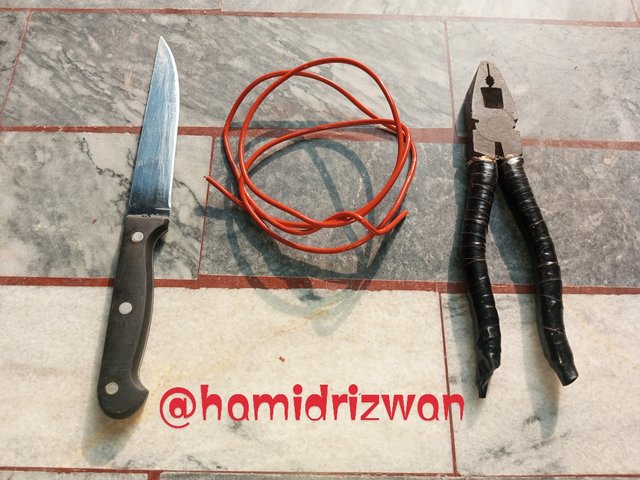
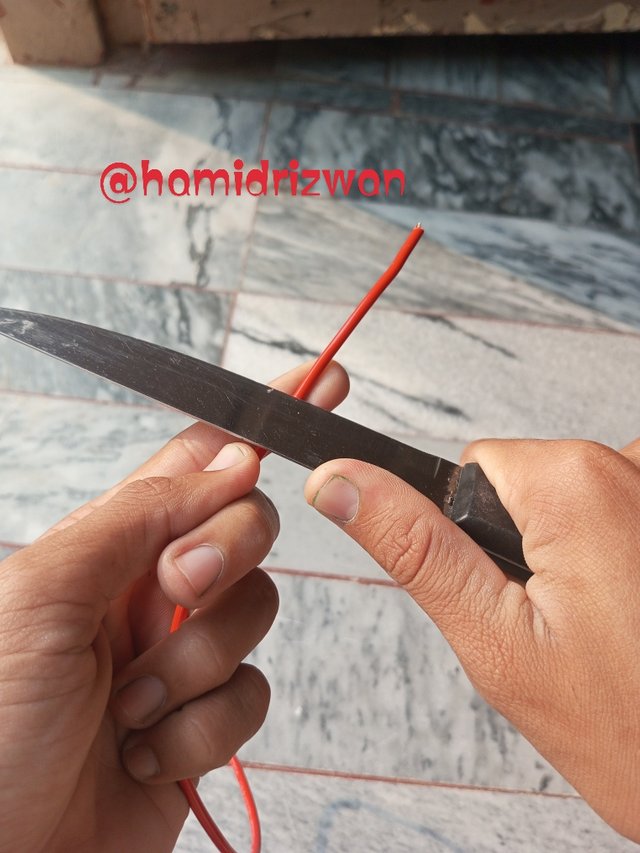
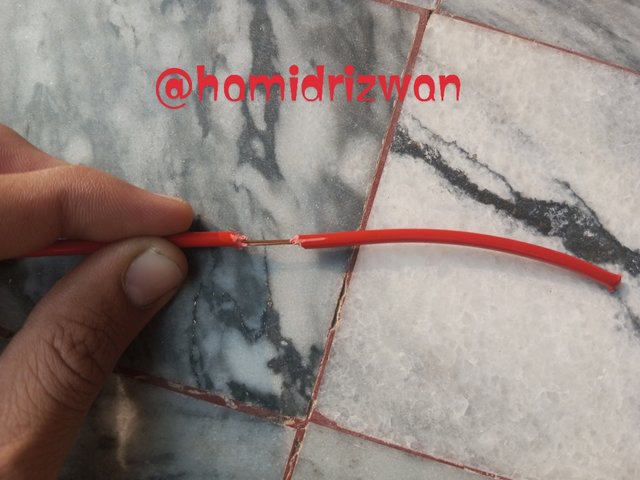
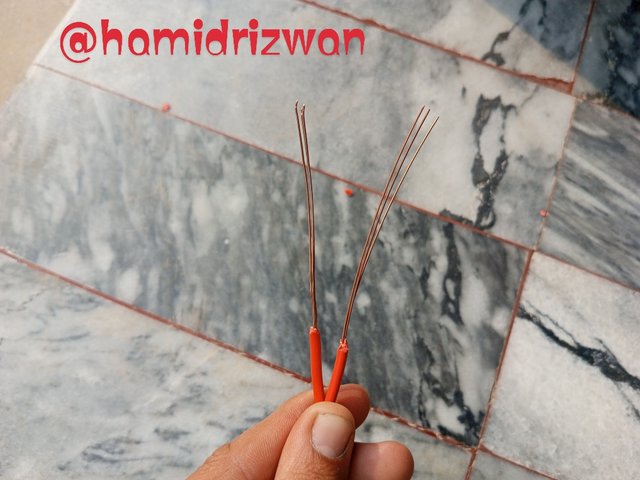
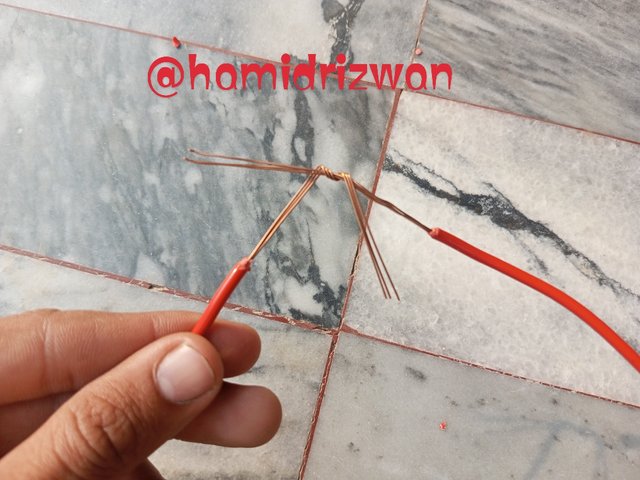
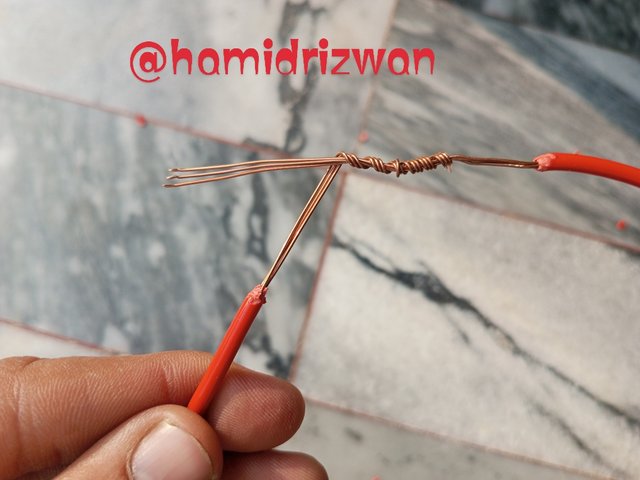
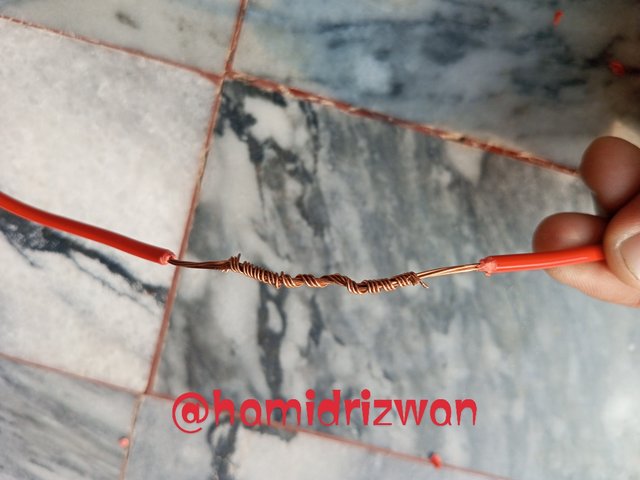


Point A You have given the definition of electric circuit. An electrical circuit is basically a closed path through which current flows. In an electric circuit the current will return to the source from which the current flows. But there can be one or more paths. In case of series circuit there is one line of current flow and in parallel circuit there are multiple paths of current flow. The electrical circuit requirements mentioned are two but you can specify more. Load management, voltage and current distribution, power measurement etc. (1)
In point B you present the differences quite well.Here the resistances of parallel circuit are placed in parallel. In a series circuit the voltage is divided and the current remains the same. The total voltage of a parallel circuit and the voltage across each resistance are the same. Series circuit has one path of current flow and parallel circuit has multiple paths. You should know these differences. The results of both the circuits you solved are correct. (3.2)
The continuity of the cable joint has been presented very well. Your attention can be fully focused on the cable connection. The details of the connecting moments were clear. (3)
We are glad to know that you are learning something. You have presented your subjects very sweetly. What you learn about the concept of electrical circuits and cable joints is enough to express your opinion. (1.5)
Comment/Recommendation
Thank you very much Professor @solaymann for your valuable opinion and your very good feedback on my post. InshAllah I will correct my mistakes. And I will try my best to participate in all your courses in the future. May Allah bless you always and stay happy always.
Regards!
@hamidrizwan
The circuit explanations in your post are great. Especially the way of explaining the difference between series and parallel circuits is admirable. Thanks for sharing. Good luck for the contest.
Brother, Thank you very much for reading my post and giving your valuable feedback on it. After that, I gave all the credit to professor @solaymann who explained to us about this course in a very good way.
Regards!
@hamidrizwan